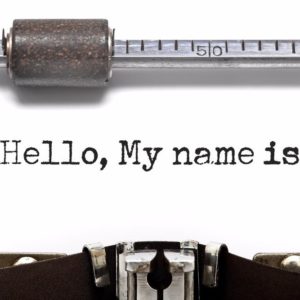

Reframing The Negatives Of Age
Unless you’ve been living under a rock for the last few months, you’ll have seen the sniping between the Republican and Democrats over the age and mental faculties of their respective candidates, Trump and Biden. But the tactic is certainly nothing new.
Way back in 1984, when I was big into pixie boots and Duran Duran, Ronald Reagan was president of the USA. It was election time and, as part of his bid to stay in The White House for a second term, he participated in a televised debate with his Democratic competitor, Walter Mondale.
At 73 years of age, Reagan was the oldest president to have served his country and the assumptions were that he was over the hill and not up to the job, so would lose the election. (By contrast, Mondale was a mere stripling at 56.) But Reagan had a skill that turned this personal brand negative into a positive.
Show the other side of the story
When asked how he would endure the gruelling demands of the presidency, he quipped, “I will not make age an issue of this campaign. I am not going to exploit, for political purposes, my opponent’s youth and inexperience.”
Reagan subsequently went on to win the highest number of electoral votes of any presidential candidate.
Age can often lead people to make negative assumptions about your brand – and not just being long-in-the-tooth; being too young, or even just looking too young, can come with its own baggage. If that’s the case with you – especially if you’re being interviewed for a job as Reagan was – you could do well to take action and flag it.
Here’s what I’m talking about…
A few years ago I was speaking to someone who knew that people often thought she was up to a decade younger than she is (my own guess at her age was six years out) so they’d assume she didn’t have much to show on her CV.
She was looking for a new role and knew this counted against her, so we talked about how she could set people straight in a subtle, yet direct way.
My first piece of advice was to steer people to the subject of job experience by asking them about themselves; something as simple as, “So how long have you worked here?” or “How long have you been working in this sector?”.
Then, compare your own experience to whatever their answer is. “Oh, that’s six years after I joined the company” or “That’s the same time as when I got my first position.”
And if you really want to push the point that you look younger than your years, you could add on, “I’ve obviously weathered well though because people think I’m a lot younger than I am, despite having plenty of experience under my belt!”
By showing people the other side of the story – whether you have more experience than they expected, or you’re not so old that you can’t deliver – you’re making sure they base their perceptions on fact, not assumptions.
Do you suffer from misperceptions about your age versus your credibility? That you’re too old? Or too young? And if so, what do you do to counteract the view? There’s a comment box below where you can share your words of wisdom. Thanks!








Leave a Reply